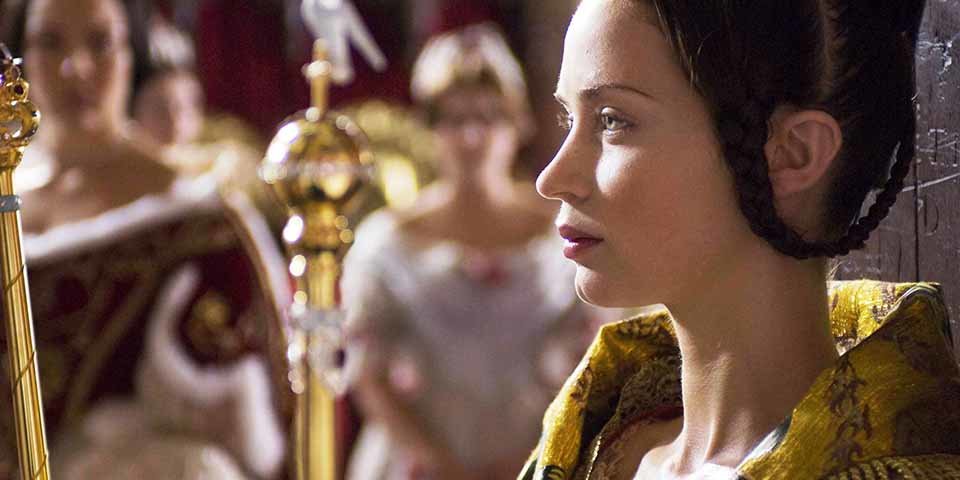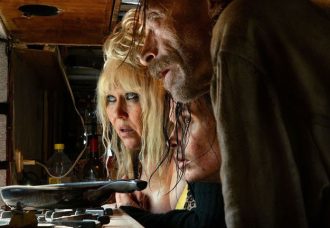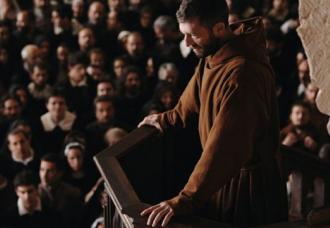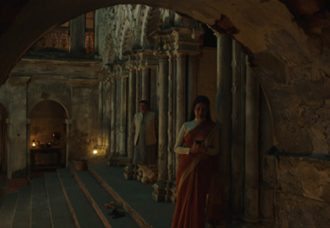The Victorian era is notorious for its morals. So, one would expect a film on the young Victoria to touch upon the cause and course, at least to a little degree. However, The Young Victoria, like many a history book, is silent on this aspect. Quite to the contrary, Victoria (Emily Blunt) appears to have enjoyed quite a healthy love and sexual life.
The only indication of repression in her youth is one that is non-sexual in nature. The palace for her has always been a prison. Even in her late teens, she is permitted to walk down the stairs only while holding the hand of an adult. Victoria appears to have been brought up as an invalid so that her mother and mother’s lover, Sir Conroy (Mark Strong) could exert power over her and the kingdom.
There is much that could have been written about, and a variety of perspectives that could have been taken, on the subject of the young Victoria. However, the screenplay does not attempt a fresh approach. Furthermore, as might be expected in a commercial biopic, some of the incidents are not quite factual.
Prior to the coronation bit, Emily Blunt lacks the bearing of a crown princess, or the teenage Queen Elizabeth for that matter; and is rebellious, and informal when addressing nobility. Strangely too, her English is reasonably proper unlike that of the original queen’s strong Germanic accent.
The character that Mark Strong plays is a rather odd one, with opposing characteristics: on one hand he is depicted as a scheming and powerful individual and on the other he screams at the teenage Victoria, grabs her hand, and thrusts a pen and paper into it, attempting to force her to relinquish her rights to the crown and to sign a regency order; not very convincing at all.
The streets are pretty clean, and the market folk too are well-dressed up for the film. It would have helped immensely had the art director and costume designer read some classic literature and gotten a feel of the real London in the early years of the Victorian age.
Jean-Marc Vallée’s pseudo biographical film does not attempt even an indirect/passing reference to a lot of facts one would like to know about this peculiar period in time. It possesses sufficient power to make you yawn, and reads like a wrongly-edited chapter from a UK schoolchild’s textbook of history.








